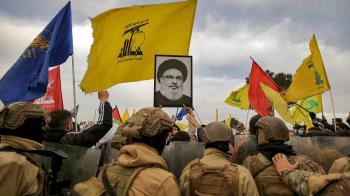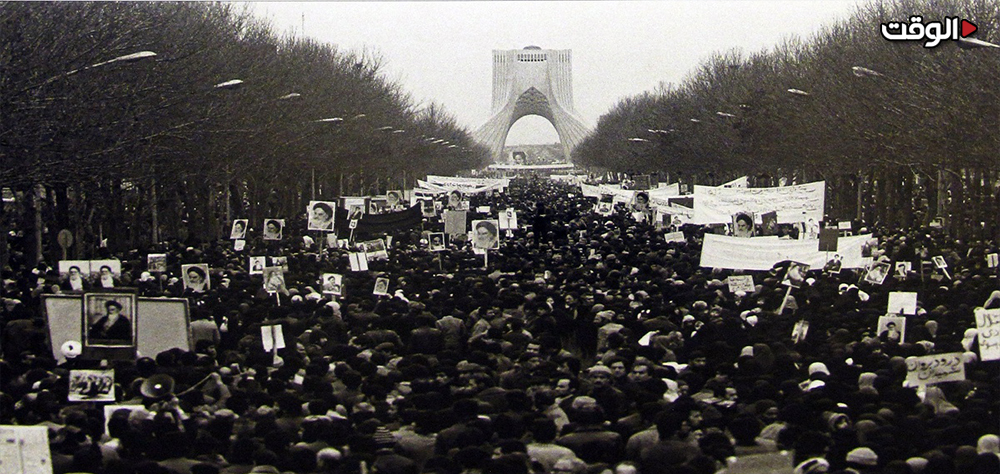Alwaght- This year, Iran is celebrating the 45th anniversary of its Islamic Revolution with an atmosphere different from before thanks to the magnificent display of power the resistance movements arising from the anti-imperialist discourse and Islamic awakening of 1979 revolution have made across the region which signals the coming to fruition of this robust tree.
In fact, these days more obviously than before we can observe the flourishing of seeds the Islamic Revolution of the 1979 sowed across the region from Lebanon to Palestine to Iraq to Yemen and to Syria which reflects the right but tough path the people of Iran chose more than four decades ago towards glory, honor, and development. One of the epitomes of this path is production of domestic power and rise of Iran as a top regional power and, without exaggeration, a decisive element in regional developments from the ashes of a country dependent and marginal in the international system under the pro-Western monarchy.
Certainly, the discourse commonalities of the resistance movements in the region with the spirit and ideology of the Islamic Revolution has various aspects, but when it comes to regional developments and the regional strategy of the Iran-led Axis of Resistance, the anti-imperialism of this bloc identifies itself with the two principles of confronting the American and Western hegemony and the liberation of Palestine and the struggle until full disappearance of the Israeli regime which is seen as a “cancerous tumor” in the region.
These two principles, or better to say ideals, have been so great that over the past four decades of Islamic Revolution age many argued that they are far-fetched and unrealizable and so identify the Axis of Resistance as the non-compromising actor whose policy has created no national power and borne nothing but costs in an international order crafted by the imperialist and hegemonic powers.
Indeed, in this difficult path, both the Iranian nation and the resistance movements have paid a high price for their perseverance and insistence on their ideals, whereas pressures even way less than this shattered or, at least, forced to submission many other pro-independence movements and revolutions across the world. But, sincerity, dutifulness, deep-heart belief in divine aid in this road, and the culture of martyrdom, which are the common features of all leaders, forces, and martyrs of Resistance camp on top of them Iran’s top anti-terror commander General Qassam Soleimani, have realized the agenda and scored victories over the enemies. Hamas’s Operation Al-Aqsa Storm should be seen as the harbinger of the achievements of the Islamic Revolution and realization of the anti-imperialist prospects of the resistance discourse in regional and international developments.
When Iranian Islamic Revolution-inspired Islamic resistance movements in Lebanon and Palestine were just fledgling in their struggle against the Israeli occupation, the Israelis, proud to have defeated Arab armies, painted their army as invincible, and in addition to occupying parts of Lebanon, they were busy expanding their occupation in Palestine. At that time, few could imagine that this Western-backed and seemingly Invincible army one day will find itself desperate in confrontation of each of the resistance groups. The alarm of end of the legend of Invincibility of the Israeli army that was rung in 2006 by Hezbollah with 33-day war was expanded to alarm of full collapse of the Israeli regime by Hamas through Operation Al-Aqsa Storm.
Now, demise of Israel is not a far-fetched ideal and the Western and even Israeli officials admit it. While a parallel pro-compromise current over the past four decades has tried to marginalize and even bury the Palestinian cause in order to isolate the Islamic Revolution of Iran, developments of Palestine these days indicate that not only resistance is the driving force and the key actor of Palestinian developments, but also Operation Al-Aqsa Storm displayed the penetration of this Islamic Revolution-inspired discourse worldwide, with nations even in the heart of the US and Europe chanting it.
The failure of policy of isolating and restricting the revolutionary Iran has totally showed itself from another aspect in the current regional and international developments: The push to expel the US from the region and shattering its hegemony in Persian Gulf and global developments.
For four decades, the US followed all-round containment policy against Iran through increasing its military presence in the region and establishing military bases around Iran’s borders while at the same time applying all kinds of political, economic, propaganda and military pressures against Tehran. These measures all served the purpose of blocking power gain of this fresh and talented actor that enjoys a novel discourse and remarkable soft power as Washington leaders know that expansion of Islamic Revolution model would jeopardize the overbearing and illegitimate interests of the US in West Asia in general and Persian Gulf in particular.
Despite all of these hostilities, the occurring of Operation Al-Aqsa Storm on the 45th anniversary of Islamic Revolution revealed the decline of the US power and Western hegemony both at regional and international levels and on the opposite side the growing power of Iran.
In the Islamic Revolution-US confrontation, Iranian regional influence is heavier than the American hard power and the US forces are not safe anywhere in the Middle East despite operating tens of overseas military bases. After its scandalous exit from Afghanistan, the US faces expulsion from Iraq and Syria which means future decrease of its presence across the region.
On the other side, as Ukraine war has already proved Iran’s transformation into a pivotal actor on the world stage, the Operation Al-Aqsa Storm asserted that the Islamic Republic of Iran is in control from Strait of Hormuz in the Persian Gulf to Bab-el-Mandeb Strait in the Red Sea and also Mediterranean coasts thanks to its powerful network of allies.



























